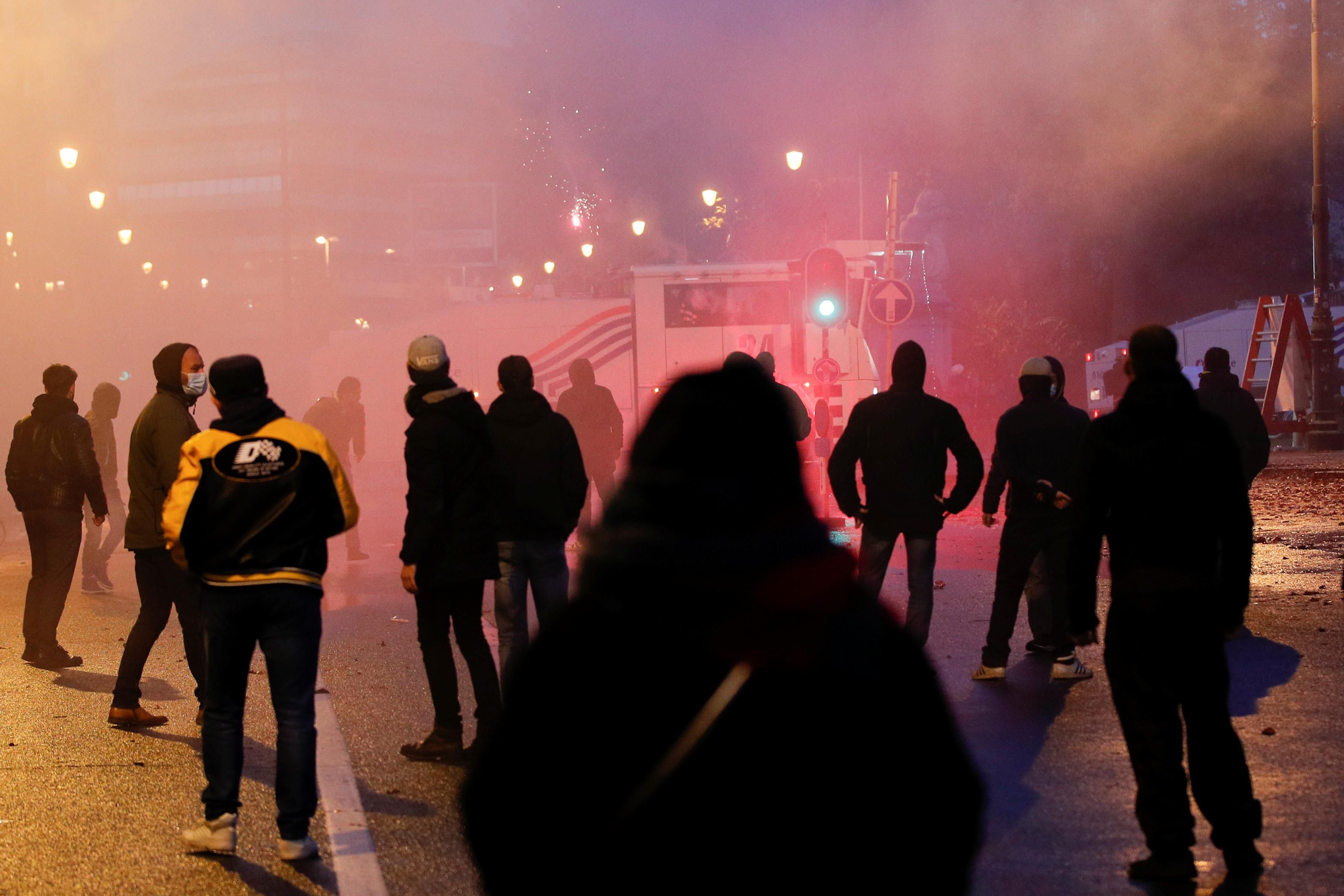November 22, 2021
Europe anti-lockdown protests get violent. Pockets of unrest spread across Europe in recent days as tens of thousands gathered in several cities across the continent to protest government measures aimed at curbing a fast-spreading wave of COVID-19. Violent clashes broke out between demonstrators and police in The Hague and Rotterdam where Dutch cops opened fire at an increasingly aggressive crowd protesting the tightening of restrictions. Meanwhile, more that 35,000 people turned out in Brussels, while large crowds rocked Vienna, protesting fresh lockdowns that initially targeted only the unvaccinated, as well as new vaccine mandates. The state of the pandemic in Europe is not good. Germany recorded more than 48,000 new cases Sunday, the highest on record, prompting new lockdowns in the lead-up to Christmas, while deaths across the continent are also rising since the summer months, though they remain well below pre-vaccine levels. What's more, far-right groups, like Austria's Freedom Party, are taking advantage of COVID fatigue and anti-vaxx sentiment to encourage people to defy government rules and sow chaos.
More For You
Thousands of demonstrators rally in support of the Iranian people during an anti-Islamic Republic protest outside the White House in Washington, D.C., USA, calling attention to opposition to Iran’s government, on Jan. 17, 2026.
Robyn Stevens Brody/Sipa USA
Eurasia Group’s Iran expert Greg Brew speaks to GZERO about whether the US will hit Iran again, and what that could look like if they do.
Most Popular
Think you know what's going on around the world? Here's your chance to prove it.
Donald Trump alongside Nigel Farage amid a television interview at his Trump Turnberry course in South Ayrshire during his visit to the United Kingdom, on May 3, 2023.
PA via Reuters
The US government will reportedly fund MAGA-aligned parties and think tanks in Europe. But with US President Donald Trump’s favorability in Europe so low, do they even want the money?
- YouTube
Zelensky agrees: elections matter #PUPPETREGIME
© 2025 GZERO Media. All Rights Reserved | A Eurasia Group media company.
